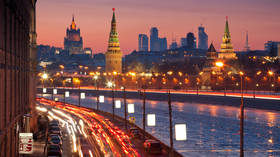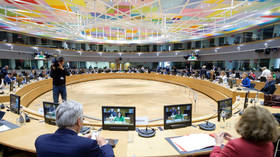EU’s Russia sanctions ‘massively circumvented’ – study

The EU’s sanctions on Russia are being “massively circumvented” via third countries, Euractiv reported on Monday, citing a study by the IESEG School of Management. The bloc has introduced 13 rounds of restrictive measures against Moscow over the Ukraine conflict.
The research found statistical evidence that the sanctions have been hugely dodged for so-called “high priority items,” which are subject to EU export restrictions and include manufacturing equipment and electrical components with potential military applications.
According to the report, EU exports of such items to Türkiye, the UAE, Kazakhstan, and other “Kremlin-friendly” countries skyrocketed by €2.9 billion ($3.2 billion), or over 80%, in the period from October 2022 through September 2023 compared to the previous twelve-month span. The data shows that at the same time EU exports of such goods to Russia decreased by $3.5 billion, or more than 95%.
The decline in EU sales of advanced technology and dual-use items to Moscow was seen as almost entirely compensated for by a sharp increase in exports of the same goods to countries in West and Central Asia, according to Euractiv.
“The surge of these purchases by third countries is too huge to be entirely caused by an increase in local demand, so that it can be suspected that a big part was thereafter exported to Russia,” the IESEG report claimed.
A senior associate at the German Institute for International and Security Affairs, Janis Kluge, told Euractiv that “Russia’s economy is resilient because it is, for the most part, still a market economy.”
The country adjusted to the sanctions through a “decentralized effort” by “thousands of [businesses] managers” to find their ways around the restrictions and “keep things working” – thus proving to be one of the key factors behind Russia’s relative “resilience” to Western sanctions, according to Kluge.
“There were new traders popping up who specialized in importing these goods through third countries. There’s a whole industry that has appeared, which is dedicated to the circumvention of sanctions – because it’s a billion-dollar business,” he stated.
The EU adopted its 13th package of sanctions against Russia last week ahead of the second anniversary of the start of the Ukraine conflict. The measures target 106 individuals and 88 entities and also further restrict trade in technologies and components that could be used by Russia’s defense industry. Components for the development and production of unmanned aerial vehicles have also been added to the blacklist. Some of the sanctioned entities are located in third countries, such as India, China, and Türkiye.
For more stories on economy & finance visit RT’s business section













